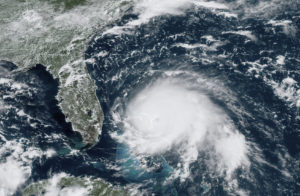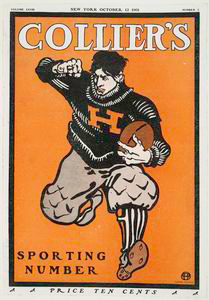What is a Writ of Certiorari in Florida State Courts?
The term writ of certiorari is used in many different contexts, depending on the courts involved. The Latin word certiorari (often abbreviated as “Cert.”) means “to be made certain,” and in Old English courts such writs actually began with the Latin words “Certiorari volumus…” (“We wish to be made certain…”). In Florida state courts, the writ of certiorari most often refers to a proceeding in which a party asks an intermediate appellate court, here known as a District Court of Appeal, to review a decision of a trial court. But importantly, it can’t be just any trial court decision, because otherwise litigants would file a writ every time they disagreed with the trial court. For the District Court of Appeal to have jurisdiction to hear a Writ of Certiorari, the order must be otherwise unappealable, and the party seeking certiorari relief must demonstrate that harm caused by the order is irreparable and cannot be remedied on plenary appeal, and that the ruling was “a departure from the essential requirements of law.” Let’s drill down on what each of these requirements mean.
Not an Otherwise Appealable Nonfinal Order
There are some kinds of nonfinal orders that Florida has decided are automatically appealable — essentially, Florida has made a policy decision that certain kinds of cases do not need to make the showing that is normally required by certioari, because there is clearly a lack of remedy by the time the case is over. Before you consider filing a writ of certiorari, be sure to check out the list of directly appealable nonfinal orders found in Rule 9.140. But if the order you want reviewed is not on the list of appealable non final orders, you should determine if a writ of certiorari is available to you.
Harm Not Remedied by Plenary Appeal
Assuming the ruling is not covered by Rule 9.140, the threshold issue the appellate court will consider is whether the harm caused by the order is of a character that it needs to be resolved now, rather than at the end of the case. The term “plenary appeal” refers to an appeal of a final order, which comes at the end of the case. Most rulings, no matter how wrong, can be fixed at the end of the case, or more importantly, don’t need to be fixed — usually because it did not affect the ultimate outcome of the case. This prong of the test is also sometimes referred to as “irreparable harm.” And not all types of harm are considered irreparable. For example, a ruling costing a party a lot of money is not sufficient to cause irreparable harm. W. Florida Reg’l Med. Ctr., Inc. v. See, 18 So. 3d 676, 682 (Fla. 1st DCA 2009), approved, 79 So. 3d 1 (Fla. 2012). Even disclosure of information in which the party has a “valid privacy interest in avoiding unnecessary disclosure of matters of a personal nature” does not generally meet this standard. Id.
What does constitute irreparable harm? The most common example is described as “’cat out of the bag’ material that could be used to injure another person or party outside the context of the litigation, and material protected by privilege, trade secrets, work product, or involving a confidential informant may cause such injury if disclosed.” Allstate Ins. Co. v. Langston, 655 So. 2d 91, 94 (Fla. 1995). A litigant must carefully consider, by reviewing existing cases, whether the harm of the order would be considered irreparable by the appellate court.
Departure From the Essential Requirements of Law
Once you prove the harm is irreparable, you still cannot get relief on a writ of certiorari unless you also demonstrate to the court that the trial court’s ruling is a “departure from the essential requirements of law.’ This phrase means, for example, that the law is very clear, and the violation of that clearly established principle of law results in a miscarriage of justice. It has to be more than just the appellate judges simply disagreed with the circuit court’s determination and interpretation of the applicable law. See Custer Med. Ctr. v. United Auto. Ins. Co., 62 So. 3d 1086, 1094 (Fla. 2010).
Successful Writs of Certioari Are and Should Be Rare
The Florida Supreme Court does not want litigants to run to the appellate courts for every little disagreement with the trial judge. That is why it says that “common law certiorari is an extraordinary remedy and should not be used to circumvent the interlocutory appeal rule which authorizes appeal from only a few types of non-final orders.†Citizens Prop. Ins. Corp. v. San Perdido Ass’n, Inc., 104 So. 3d 344, 349 (Fla. 2012) (citation omitted).
There Are Other Writ of Certiorari Standards In Florida
This post talks about the most common type of writ of certiorari, but there may be other times the term writ of certiorari is used in Florida Courts to apply to different situations. Those other situations also have different standards of review. If you have a question about whether you should file a writ of certiorari, or if the other side of your litigation has filed a writ of certiorari and you need help, feel free to contact us at 813-778-5161 or fill out our intake form here to initiate scheduling a consultation.



